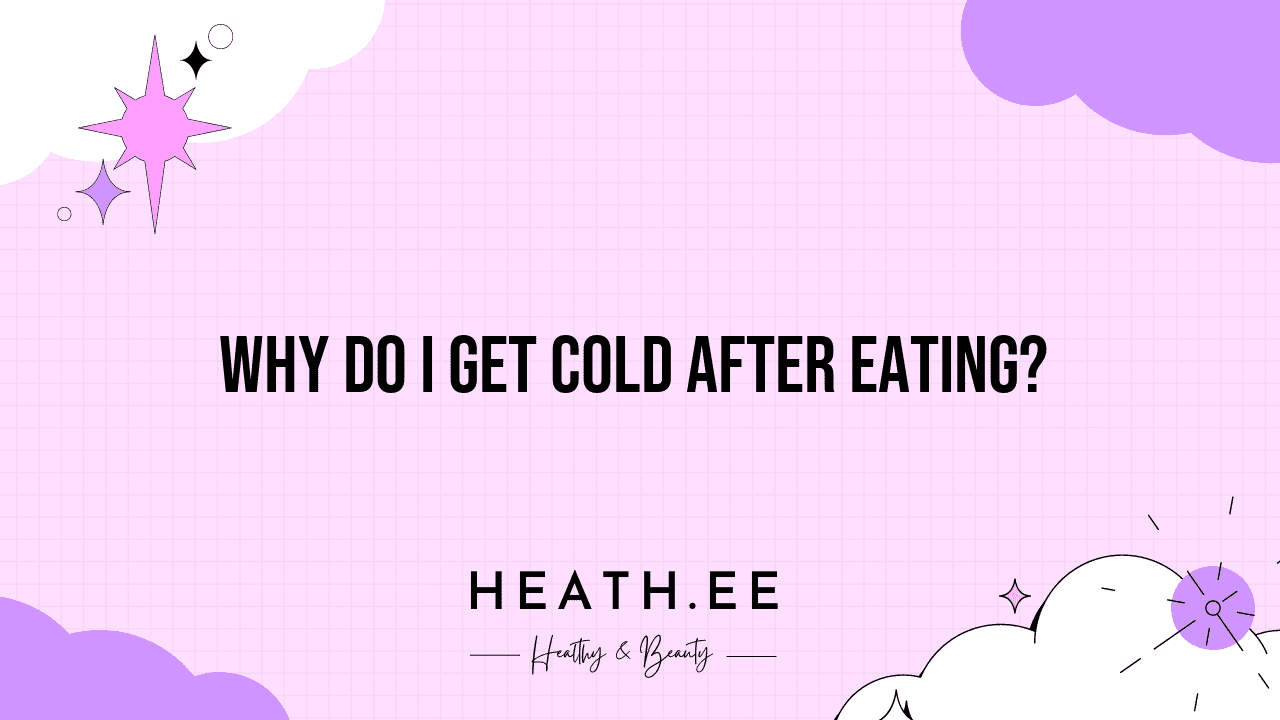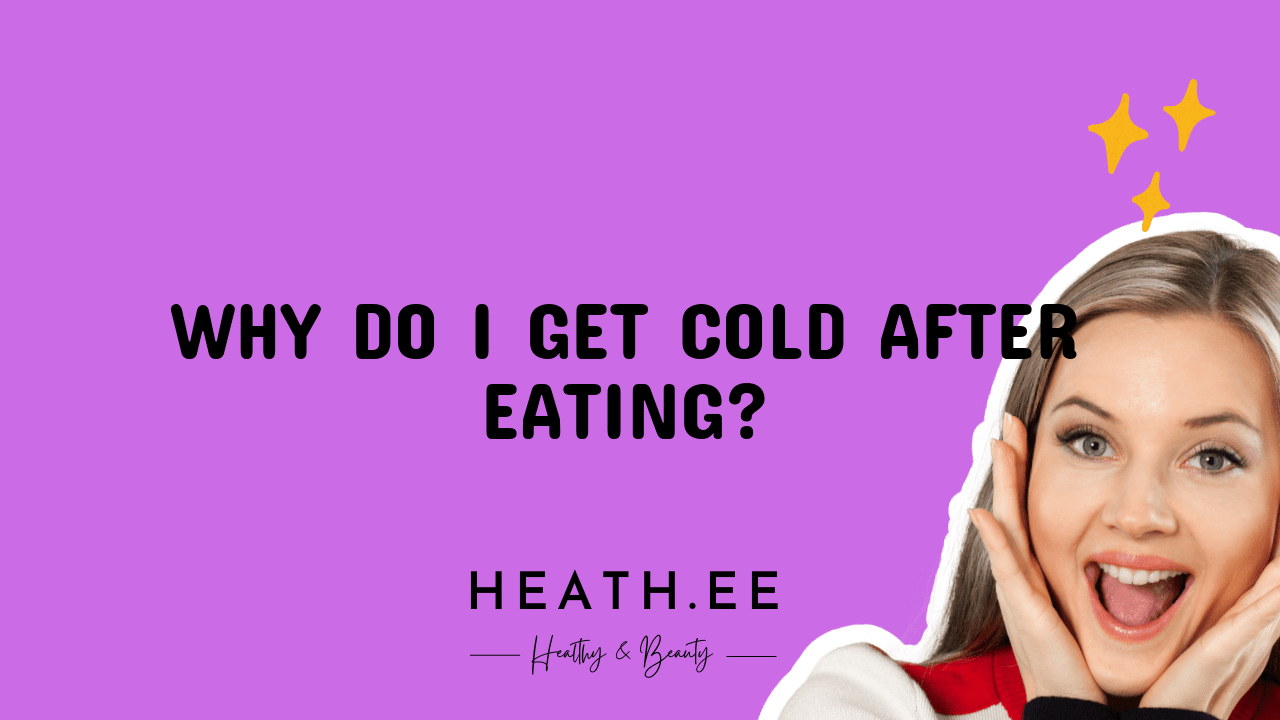Cold symptoms are usually associated with the winter season, but did you know that some people experience coldness after eating? There is a scientific explanation behind why this happens, and understanding it can help you better manage your body’s response. In this blog post, we’ll discuss why you might get cold after eating, and what you can do to help.
What Causes Coldness After Eating?
When you eat, your digestive system needs to work to break down the food and absorb its nutrients. This process requires energy, and your body diverts blood away from the skin and other non-essential organs to help your digestive system do its job. This can lead to a decrease in your body temperature, resulting in a feeling of coldness.

Are Some People More Likely to Get Cold After Eating?
Yes, some people are more prone to feeling cold after eating than others. People who have a slower metabolism, or who are overweight, are more likely to experience coldness after meals. Additionally, eating a large meal can cause your body to divert more blood towards digestion, leading to a decrease in your body temperature.
How Can You Manage Coldness After Eating?
If you experience coldness after eating, there are some steps you can take to help manage it. First, try eating smaller meals more frequently throughout the day. This will help your body digest food more efficiently, and may reduce the amount of blood diverted away from your skin. Additionally, drinking a warm beverage after meals can help to raise your body temperature.

Is Feeling Cold After Eating a Sign of a Health Problem?
In most cases, feeling cold after eating is not a sign of a health problem. However, if you experience coldness after eating along with other symptoms such as fatigue, dizziness, or nausea, it may be a sign of an underlying medical condition such as anemia or hypoglycemia. If you experience any of these symptoms, it’s important to speak to your doctor.
What Are the Benefits of Eating Smaller Meals?
Eating smaller meals more frequently throughout the day has a number of benefits. It can help to stabilize your blood sugar levels, which can reduce cravings and help you maintain a healthy weight. Eating smaller meals can also help to improve your digestion, which can lead to more efficient absorption of nutrients.
What Are the Benefits of Eating a Balanced Diet?
Eating a balanced diet is important for maintaining your overall health. A balanced diet consists of a variety of foods from all the major food groups, including fruits, vegetables, grains, proteins, and dairy. Eating a balanced diet can help to provide your body with the nutrients it needs to function properly. Additionally, it can help to reduce your risk of developing certain health conditions, such as heart disease and diabetes.
What Are the Benefits of Drinking Warm Beverages After Eating?
Drinking a warm beverage after eating can help to raise your body temperature and reduce the feeling of coldness. Additionally, warm beverages can help to relax your digestive system, allowing it to work more efficiently. Warm beverages can also help to soothe your stomach and make you feel more comfortable after eating.
What Are the Benefits of Exercise After Eating?
Exercising after eating can help to increase your body temperature and improve your overall health. Exercise can help to speed up your metabolism, which can help to reduce the feeling of coldness after eating. Additionally, exercise can help to improve your digestion, which can lead to more efficient absorption of nutrients.
Conclusion
Feeling cold after eating can be uncomfortable, but understanding why it happens can help you better manage your body’s response. Eating smaller meals more frequently throughout the day, drinking a warm beverage after meals, and exercising after eating can all help to reduce the feeling of coldness. If you experience coldness after eating along with other symptoms, it’s important to speak to your doctor.



